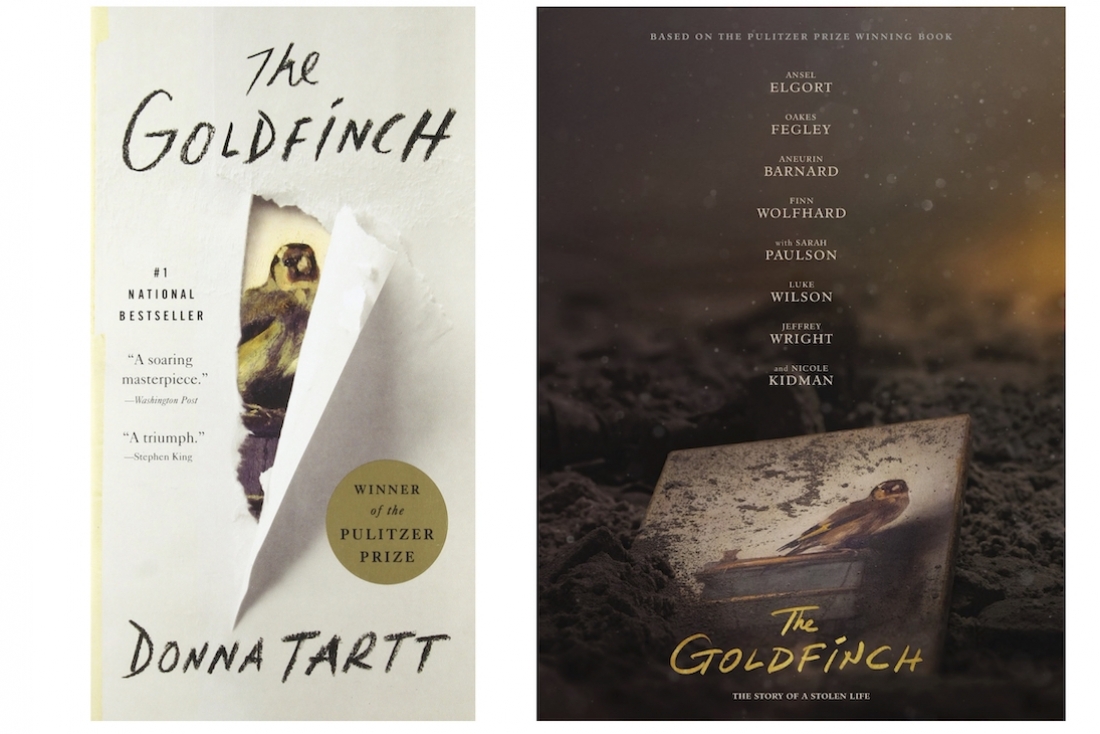

Since time immemorial, human existence has been intertwined with stories. We’ve held onto stories in the form of oral narratives, and have evolved to the era of Virtual Reality. In this expansive universe of storytelling, there have also been moments where we have re-imagined stories. These re-imaginations have come not only across stories, but also across mediums. In getting adapted from literature to cinema, books have often transformed our visible real world to a text. The most obvious question that then arises is: Why do we choose to repeat stories? Which are the stories which have held their ground by evolving through time? Platform takes a look at a few adaptations in the year 2019, and explores what we can look forward to.
The Goldfinch:
In the year 2014, The Goldfinch won the Pulitzer Prize for Fiction. Written in the first person, Tartt’s novel is a meandering narrative that moves through the irregularities of memory. Just as memory comes back in glimpses, the protagonist Theo Decker navigates through moments in time. In terms of the plot, The Goldfinch is the story of Theo, who loses his mother at the Metropolitan Museum of Art in a bomb blast. In the saddening angst of the moment he loses his mother in, he receives a ring from a stranger and runs away with The Goldfinch painted by Carel Fabritius. With an absent father, he is taken in by the wealthy Barbours. But as Theo grows, he traces the inscription on the ring to an antique restorer named Hobie. No sooner than this life changing moment takes place, Theo is claimed by his father and ends up in Nevada where he befriends a Ukranian boy named Boris. Gradually, Theo returns to New York as an antique dealer himself and gets tangled in the web of the lost The Goldfinch. In every way, Tartt’s novel is a series of coincidences coexisting with significance. Crowley’s movie, instead of re-imagining the book, re-tells it. The plot recklessly follows the crumbs left behind by the book. The movie appeases to the beauty of the art world, but the story is lost to the temporal limits of the screenplay. It appears rushed and fragmentary. It does not bring together the floating pieces in Theo’s memory into one frame. But perhaps, such is the nature of memory? And it is in memory of memory that we’re compelled to re-imagine The Goldfinch.
Leila:
It would be slightly naïve to categorize Akbar’s story as dystopian fiction when it stands as a reflection of our contemporary reality. While Akbar’s story reflects the anxiety of living in a tyrannical State, Deepa Mehta’s story ties this anxiety with the struggle of being a woman on one hand, and being a mother in search of her child on the other. In Akbar’s story, it is almost as if the purity of the nation state itself becomes a character. It speaks in undertones, with a sense of generalized assertion. But Mehta’s story makes the undertones overt, she is referring to the Sanskritized Hindu Rashtra we live in under the rule of Mr.Joshi. Mehta makes other significant plot changes such as changing the age of Shalini’s daughter, creating a charged rebel group and altering the climax. All these changes are necessary not only to sustain the speed and the conflicts in the plot, but also because they make sense ominously. One might wonder how does a daughter forget about her mother in just two years, but isn’t that the very anxiety that Akbar’s narrator struggles with? In the face of the indoctrinating narrative of the authoritative State where one repeatedly chants about the glory of the State, one renders their own memory and past to the one favored by the State. That it can happen is as little as two years is the discomforting truth. The climax of both the text and the series leaves the reader and the viewer on a cliffhanger, making them ponder what happens to Leila? And what happens to the Nation State?
With these titles already on screen, this year, we await the arrival of Sachin Kundalkar’s Cobalt Blue directed by Kundalkar himself, and Louisa May Alcott’s Little Women directed by Greta Gerwig of The Ladybird fame.
Text Muskan Nagpal